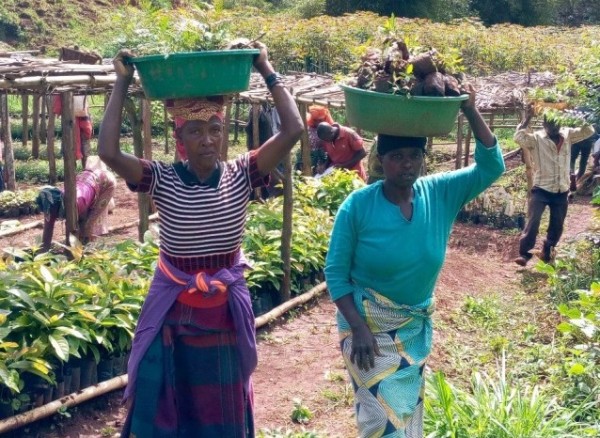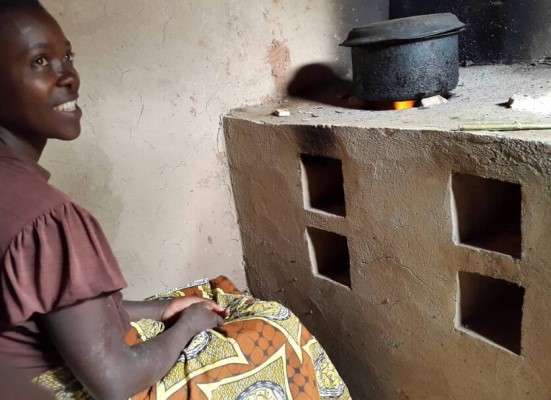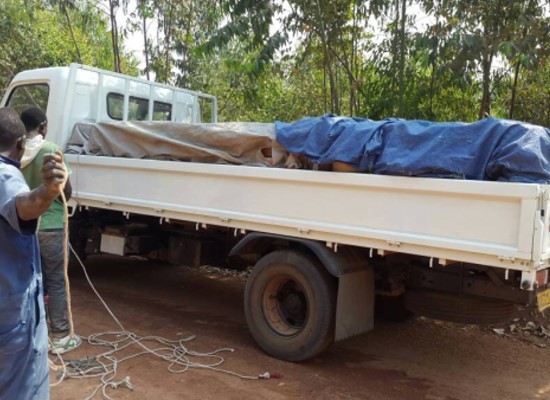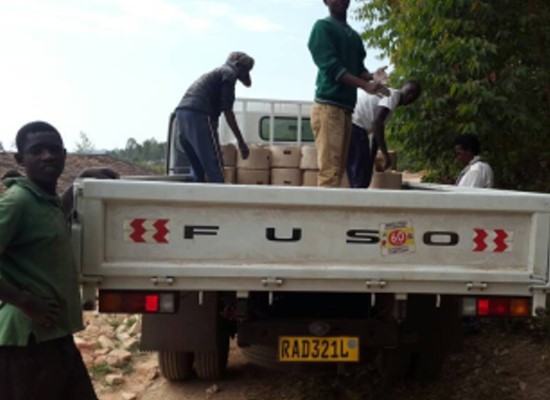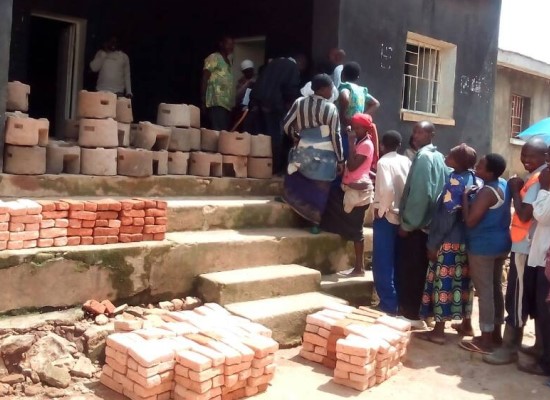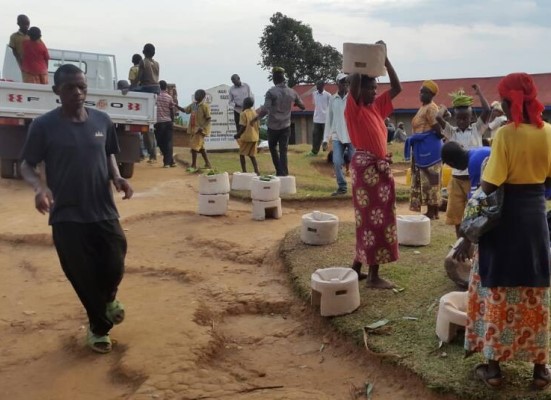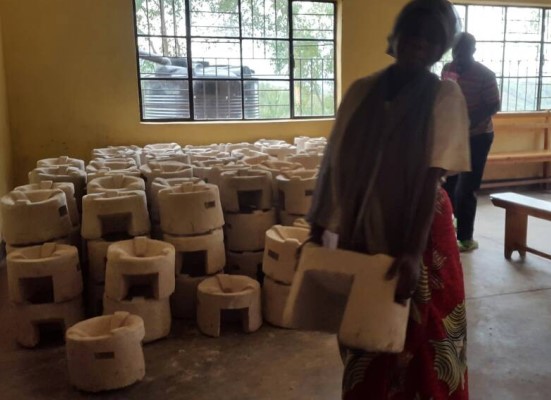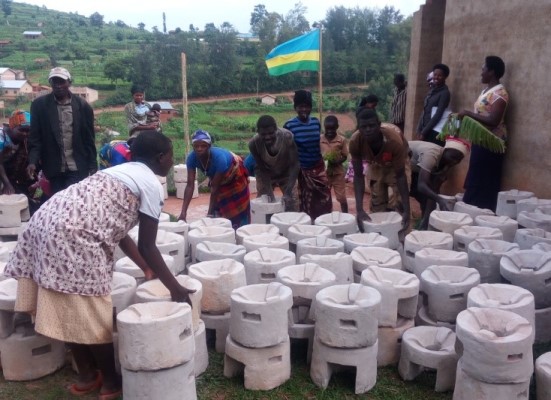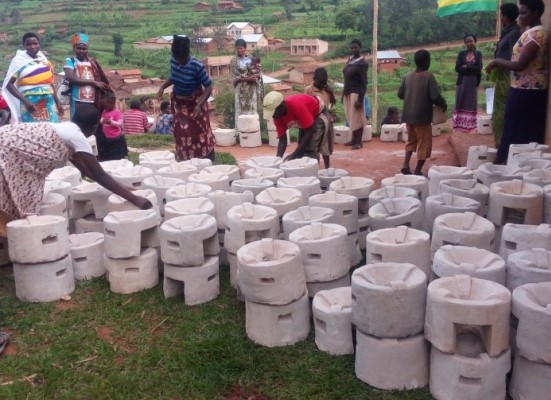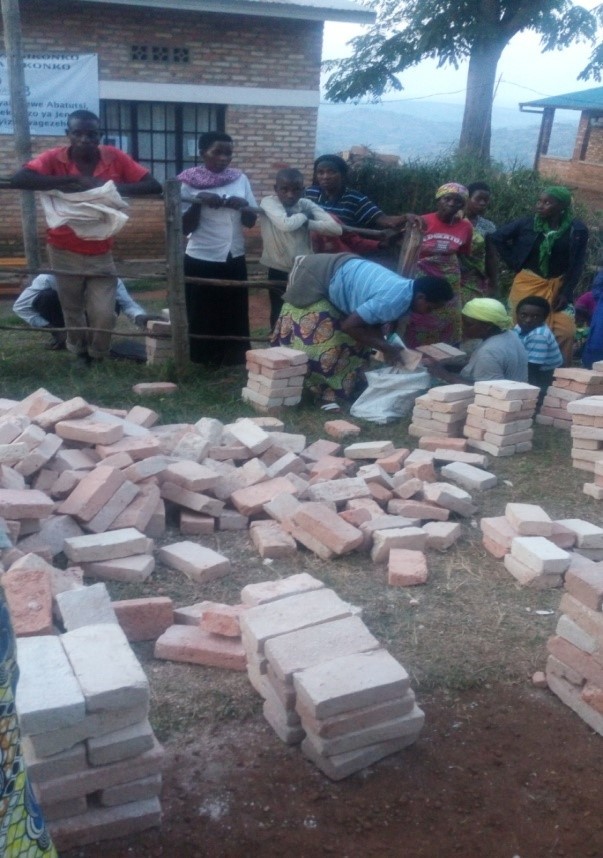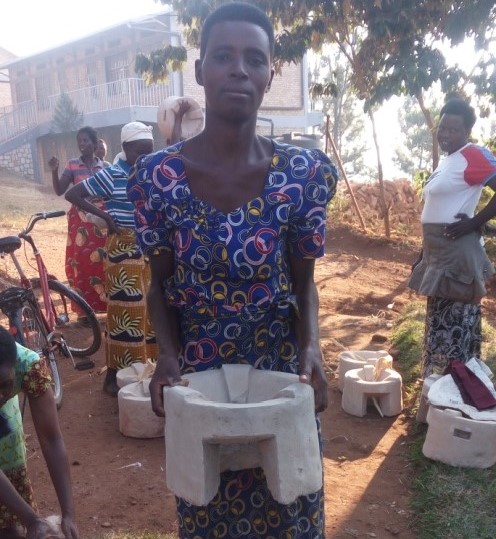OUTPUTS
From May 2019 the following activities have been carried out: Land preparation: This was done by the tree nursery bed managers under the supervision of RDIS field Coordinator to cleaning the bushes, removing tree stump, roots and levelling was done based on seed sowing in seedbeds. Rehabilitation of tree nurseries: Identification of the construction materials and construction was done. All 5 tree nurseries were rehabilitated with new construction materials. Purchasing and transportation of manure: After sowing seeds in fertilized soil, seedlings were grown well. when the soil is fertilized, therefore, organic manure was transported to the tree nursery beds to be mixed with soil as a good way to speed up the growing of seedlings.
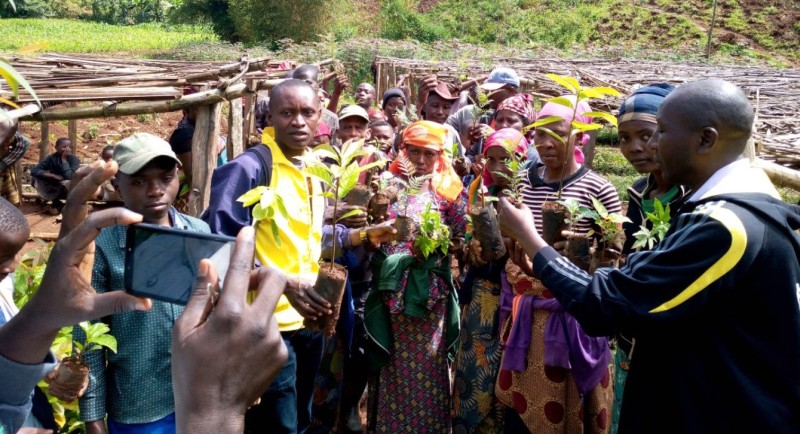
Summary of the project:
--
|
Project title |
Environmental conservation and Care |
|
Date of this report |
February 2020 |
|
Type of report (Interim/End of year/Final) |
Final report |
|
Planned project start date |
May 2019 |
|
Actual Project start date |
June 2019 |
|
Amount of grant awarded |
8,471,640 |
|
Amount sold seedlings |
37,800Rwf |
|
For what period |
10 Months |
|
Purpose of the grant awarded |
To set up and maintenance of 5 tree bed nurseries in Cyangugu diocese. 2 tree bed nurseries in Nyamasheke district and 3 tree bed nurseries in Rusizi district. |
--
Tree nursery preparation and sowing seeds: All seeds are mostly sown in well drained with moderate shade, tree nursery beds are located near the water source and none compacting soil, seeds were sown first in the germination beds for easy putting them in plastic bags.
During seed bed preparations Materials used were: Hoe, Machete, Garden tools (fork, shovel) Sandy soil, timbers and Shade grass.
Purchasing of seeds and plastic bags: A reliable supplier of the seeds was identified to ensure good germination and quality seedlings. GREEN LARD in Butare (Huye district) has supplied all seeds excluding avocado seeds. Avocado seeds were bought in rural areas and plastic bags were supplied by Hinga Supplier Ltd. The following Species were sown: Forest trees: Eucalyptus Saligna. Agroforestry trees: Grevillea robusta and Molinga. Fruit trees are: Grafted avocadoes, Mangoes, passion fruits, papaya, tree tomatoes and orange.
IMPLEMENTATION
The project started with project kick off planning meeting at the end of May 2019. This meeting brought together RDIS field coordinator, RDIS Executive secretary and project accountant. The main aim of this meeting was to set up operational budget and setting up the measures to overcome all challenges. After this meeting there had also another small meeting of RDIS field coordinator with all 5 tree nursery bed managers in order to sign contract with them. Not only this but also to agree on species of seeds and seedlings needed by community. Before the meeting of Field coordinator and bed managers
During that meeting the following resolutions were made:
- Species: We have chosen the species based on the community The species chosen in close collaboration with sector and district foresters and agronomists are the following: Forest trees: Eucalyptus Saligna. Agroforestry trees: Grevillea robusta and Molinga. Fruit trees are: Grafted avocadoes, Mangoes, passion fruits, papaya, tree tomatoes and orange.
- Monitoring and evaluation the project: RDIS field coordinator has executed field visits to each tree nursery on monthly basis for advising tree nursery bed managers and demonstrate grafting practices, delivering pesticides, and materi The sector forest officers and RA agronomist in collaboration with RDIS Field Coordinator have visited all sites throughout the project implementation for advising the bed managers. Their advice has helped in good performance.
- Planting: At the maturity of tree seedlings RDIS field coordinator, RA agronomist and Sector forest officers had visited all sites and allowed bed managers to distribute seedlings in order to plant them on time and all bed managers were given forms to record beneficiaries
- Watering of seedbeds using non soaped water [dirty water may cause diseases] in early morning hours and late evening hours to Keep the seedbeds moist but not wet has been However watering is not done at a fixed time each day, tree nursery bed managers
Water when the plants need it. - Reporting: The bed managers have been given a reporting form to give monthly report to RDIS field coordinator.
- Weeding and other regulation: Regular weeding was done to reduce weeds which may compete with seedlings on soil nutrients thus rending the seedlings stunted g Tree nursery bed managers recognize that most of the micro-organisms, insects and pests that cause diseases in the nursery live in weeds, trash and puddles.
- Seedling distribution and planting: The distribution and planting of seedlings started in November 2019. The opening day of seedlings distribution took place at Nyakabingo tree nursery. Most of seedlings were distributed freely.
Outcomes
- The economic growth of Families and eradication of malnutrition due to plantation of fruits trees.
- Economic growth of tree nursery bed managers due to money earned for preparing tree nursery
- Increasing of the surface area with forestry and controlled e
- Disaster risk reduction and environmental safeg
- Farmers in rural community are happy to get the needed seedlings easily.
- The reduction of air pollution due to a big surface area with forestry.
- Firewood will be increased when the trees planted are mature
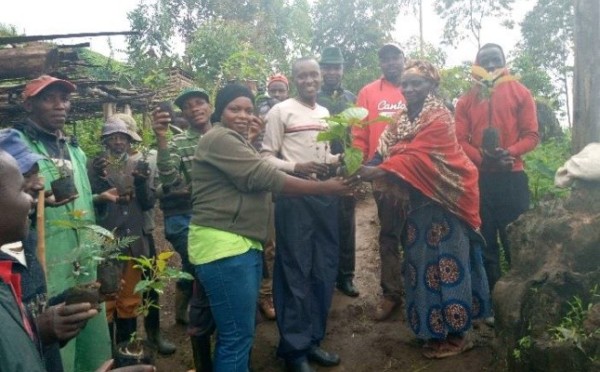
Feedback
Feedback from beneficiaries
- Pierre MUKENSHIMANA from Nyamasheke district, Bushekeri sector, Buvungira cell, Buhinga village with Telephone number 0783267425
- In the testimony of Pierre explained that is happy and thankful to the project because they have given seedlings based on their needs.
- He also said that he will maintain the planted trees in good way and he except to make money from them and he considers the planted trees as a good heritage to his descen
- The trees helped them to control erosion in on their l
- Fruits trees are helpful of the eradication of malnutrition at hom.
- Madame Eugenie UWAMAHORO is living in Kangazi cell, Nkanka sector, Rusizi district has planted Tree tomatoes and avocadoes. She is expecting to get money from those fruits and is expecting to eradicate poverty and malnutrition. Not only have these but also at harvesting period they hope to get school fees of students easily.
Tree nursery bed project beneficiaries are happy and enjoy to plant trees because they now know the important planting tree. The following are mentioned by most of the farmers: Trees help in erosion and landslides control, provide timbers, woods and trees for house construction and they help in increasing the economy of farmers. Fruits trees are help in fighting against malnutrition and getting money for family economical increase.
Feedback from district
- District forestry and natural resources officers at both Rusizi and Nyamasheke appreciate the tree nursery project and their request is to spread the project in more sectors than it is.
- The executive secretary of JADF (Joint Actions Development Forum) in Rusizi district said that the project helps the districts in performance contracts and they hope to fight erosion through this project and to fight against malnutrition in rural area. His request is to keep on increasing the number of fruits trees.
Feedback from sector
- Feedback from Nkanka sector is thank RDIS and all partners of tree nursery project. His request for next year project is to prepare much more fruits based on those that are highly rich on vitamins and those grafted fruits.
- Bushekere sector forestry officer also gave thanks to RDIS and Rwanda Aid and she thanks that the trees were ready to be planted on time. Her request is to keep on distributing seedlings at right time for planting and to increase number of trees if
Feedback from Cells
- The leader of Buvungira cell gave much appreciation to the project because most of the new forests in his cell are trees from the tree nursery of RDIS and he considers this as big achievement in his cell and also in the reg
Feedback from Tree Nursery Bed Managers
- Nursery bed managers are appreciating the regular monitoring and visit from RDIS Field They also thankful of visit and helpful advice of Rwanda Aid agronomist.
- Bed managers thank RDIS in partnership with Rwanda Aid to provide job for them which is improving their life standard and their famil
- Nursery Bed managers are thankful and appreciate for being paid regularly.
- They are happy for knowledge they get from trainings and they need to be given certific
- Bed managers are willing to visit the nearest planted tre
- The farmers are not flexible to pay some money on seedling When seedlings are distributed freely farmers plant them as quick as possible but when it comes to ask seedlings fees the seedling can remain in tree nurseries.
- Tree nursery bed managers are thankful because the project started without much delaying.
- Bed managers requested if possible to be given smart phone for facilitating them to prepare seedlings in good condition.
Challenges
- Poor germination rate of Molinga and the failure of germinated seedlings of Molinga: There was poor germination of Molinga at all the sites and the failure germinated seedlings of Moling At all sites very few seeds of Molinga was germinated but also were immediately failing after putting them in plastic bags.
- Stealing of grafted seedlings: At all sites the grafted avocadoes were stolen and planted without recording
- Beneficiaries are not willing to buy seedlings: For tree nursery bed project sustainability it should be better if beneficiaries’ contribution small amount on seedlings but most of all seedlings were distributed freely because beneficiaries are not willing to give any contribution on seedlings due to their min
- At Gashonga tree nursery sites there was too much rainfall and erosion which caused the destruction of 1,328 seedlings but after this we had a great partnership with Gashonga Sector leaders and they provided community work to fight against erosion in surrounding watershed for the protection of Gashonga tree nursery.
Proposed Resolution
- We need to have some research to check why Molinga are always failing in Cyangugu z Not only this but also we will buy seeds from different seed suppliers to verify if the region is causing the failure or if the problem is seeds.
- We will keep on sensitizing to the rural communities to avoid to steal seedlings before they are distributed officially.
- In close collaboration with local leaders we will enhance sensitization to rural farmers so that they can pay some amount mainly on grafted seedlings for the project sustainability.
- As agreed with RDIS field coordinator, Rwanda Aid agronomist, sector agronomist and site manager, Gashonga tree nursery for next year project will shifted to another site.
Project Sustainability
- To enhance sensitization of the community members as a strategic way for rising their awareness and increase their ownership and contribut
- Monitoring and follow up of trees planted out in the previous y
- Strong collaboration with local lead
- Tree nursery bed managers were trained for tree nursery maintenance and fruits grafting in order to raise their knowledge for preparing seedlings properly.
- Teaching farmers how to plant tre
Total Number of Beneficiaries based on the sites
--
|
NO |
TREE NURSERY BED SITE |
NUMBER OF BENEFICIARIES |
|
1 |
Cyato |
92 |
|
2 |
Gashonga |
111 |
|
3 |
Gisakura |
225 |
|
4 |
Nkanka |
118 |
|
5 |
Nyakabingo |
226 |
|
TOTAL NUMBER |
772 |
Total Number of seedlings planted out by some Institutions
|
No |
TYPE OF INSTITUTION PLANTED TREES |
Number of Trees planted |
|
1 |
Churches |
1,108 Seedlings |
|
2 |
Villages, Cells, Sectors |
3,155 Seedlings |
|
3 |
Farms |
700 Seedlings |
|
4 |
Schools |
415 Seedlings |
|
Total number of seedlings |
5,378 Seedlings |
--
The below are pictures taken during project Monitoring and also during the distribution of Seedlings.
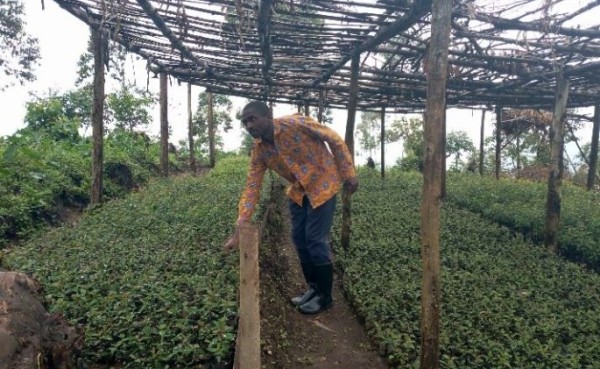
These photos were taken during the distribution of seedlings to the farmers and farmers were excited to be given seedlings.
